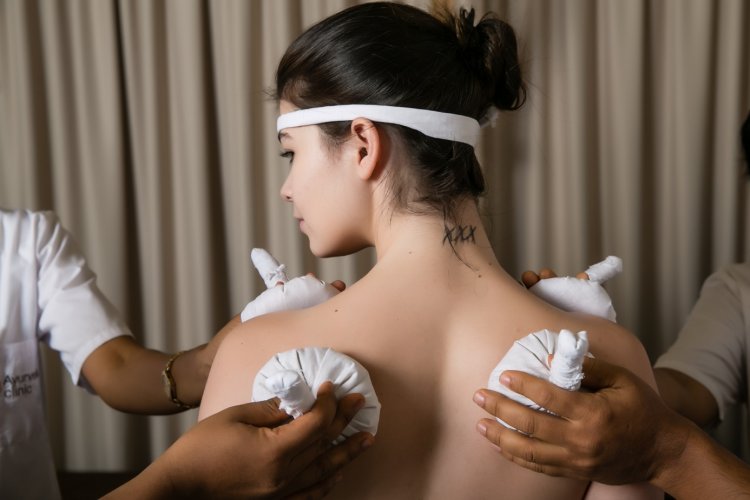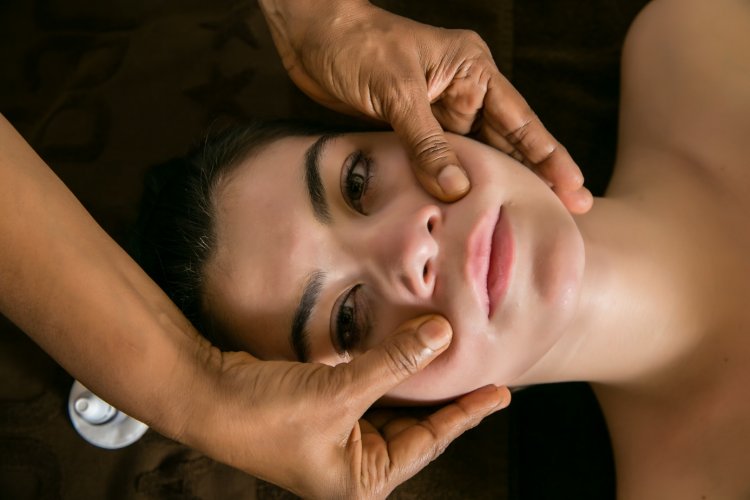If Ayurveda is still a little known to you as a science and holistic system, perhaps Dharma will not mean anything to you or you think this is the name of a method or a treatment used by Ayurvedic medicine. The truth is a bit more different!
What is Dharma in the Ayurvedic medicine?
Let’s start with the following: Dharma is one of the four life cycles according to Ayurveda.
There is no one and only exact translation of the word. Dharma comes from Sanskrit and means many thing but all of them are related to the path and duty of man Some specialists translate Dharma as a "goal in life", "moral principles” and others as "duty", "daily duties", "support", "universal law of being”.
In its essence, Dharma is an extremely voluminous and profound concept that is difficult to explain in a few words, but in general we can say it means the intended path of every person. These are their duties, values and responsibilities. Each of us has our own way to go while we are on this Earth.
Dharma is an extraordinary phenomenon, structured by the living forces (Devata) in the field of mental consciousness. It also changes with the development of the degree of awareness of the individual soul.
From time immemorial, people have been looking for answers to questions like: Who am I? What is my mission in life? What is the purpose of life?
A life lived without looking for answers to these questions is completely meaningless and lived in vain. In order to be happy, to feel the fullness of life, we need to be aware of our duty, our mission and have clear directions.

What if we are fulfilling the duty and obligations of someone else? How do we find out if this our Dharma or not?
Vedic science defines five Dharma types taking into account our nature, common markers, previous incarnations, previous experience. Ayurveda also teaches us that the Universe gives every man an ideal body and the exact nature to accomplish their personal mission in life.
The five types of Dharma
* Enlightener
Vocation: To teach others
Qualities: compassion, wisdom, self-control
People with this Dharma are mostly idealists and practicality is not their strong side. They have a strong intellect and the ability to adopt abstract concepts. They are motivated by ideas, not by money. They are less physically resistant than other types. They are good teachers but they often lack discipline and do not follow what they themselves preach
Weaknesses: irritability, propensity for debauchery, excessive self-criticism.
The task (Dharma) of the enlighteners is to know the knowledge and to direct society to the ideal through their wisdom.
* Warrior
Vocation: To protect
Qualities: Courage, power of the spirit
Warriors are born leaders and therefore tend to dominate. They are strongly motivated to change themselves and the society. They have an innate desire to protect the weak. They are extremely disciplined.
Weak sides: passion, rivalry, pride.
Warriors are born to lead society since they are leaders by nature. They defend and protect the highest values such as morality, justice, freedom, purity. The warrior faithfully serves the society guided by the principles of honor.
* Tradesman
Vocation: creation
Qualities: Charity, energy
Tradesmen are motivated to protect themselves and their family financially. They surround themselves with people and love to organize parties and evening events. They feel lonely and devastate without a society. Tradesmen are charismatic, socially active and a very good company during entertainments. They are generous but their generosity is first directed towards family, friends and only then towards society. They like to make gifts.
Weak sides: They have a tendency to different type of addictions; they are self-centered.
The task (duty) of tradesmen is to make people happy, to create goods and services that bring joy, comfort and convenience. They open restaurants with a pleasant atmosphere and produce quality goods. Tradesmen are happy when they see joy on the faces of buyers and customers.
* Worker
Vocation: Care for others
Qualities: devotion, efficiency, persistence
Main values: family, friendship, faith, patriotism. For the Worker everything is black and white. They are physically strong and resilient, ready to serve and capable of self-sacrifice. They have good intuition, sharp mind and skillful hands.
Weak sides: envy, inability to change their views
Their Dharma is to help. To help others, take care of their family, friends and relatives.
* Rebel
Vocation: Innovations, participation in different causes, fight for rights and freedoms
Qualities: Compassion, love of freedom
The person with this Dharma is distinguished by their views, beliefs, hobbies and even by their appearance and clothes. They travel to non-standard places and countries. They perceive the customs and views of other cultures, adapt easily to the environment, play different roles. They do not accept establishment, authority, established norms, dogma. They are not religious nor spiritual. They have a strong sense of the injustice in society and its vices. The Rebel gets attached and easily changes their views, place of residence, partners, friends.
Qualities: free-spirited
Weak sides: self-deception, denial of responsibility, temptation to blame the world and others for their problems.
The bearers of this Dharma are innovators, they break the inveterate opinions, change views. Rebels have the ability to solve seemingly unsolvable problems, show principle and consistency in the defense of rights, freedoms and innovations.

It is important to know that the Dharma is not inherited. Your parents may be engineers, doctors, farmers, transport workers or mechanics, but that does not mean that you automatically inherit their Dharma.
There is no hierarchy either. People with different Dharma have the same rights, are equally useful and equally important to the welfare and health of society. Everyone realizes their life potential according to their unique vocation.
Dharma does not change. We are born with it and it is our path for the rest of our lives.
If Dharma is our way and duty, what is the relationship with Ayurveda treatment?
Chakra says: "Everything in this world has only two states – normal and pathological, and for each of them there is a good reason. There is nothing unjustified in the world.“
Vedic science believes that the illnesses manifest themselves in an imbalance of the three doshas or when many causes accumulate, but disappear when the imbalance is removed and the causes are discovered. Diseases can also be manifested by dissatisfaction with what we do, the feeling that we live, work or do something from that does not make us happy… or in other words we are not following our Dharma.
Can Ayurveda tackle with all the diseases?
Before we speak about what kinds of disease Ayurveda cures let us get back in time. Then, about 5,000 years ago, Vedic philosophy was born, and Ayurveda has been practiced ever since. The basis of this healing system, which is the only holistic system recognized by the World Health Organization to treat and prevent various diseases, is the understanding of man and the universe.
Unlike all other treatment systems, Ayurveda devotes much attention not only to the physical body and the illnesses that occur but also to the state of soul and mind.
According to Vedic philosophy and medicine, any imbalance, whether it be the body, the soul or the mind, can lead to the emergence of various diseases.
By doing so, Ayurveda can diagnose and cure any illness, including so severe and incurable for the modern medicine diseases such as cancer.
And still, what kind of diseases does Ayurveda cure?
* heart diseases;
* high blood pressure;
* diseases of the digestive and excretory system;
* skin diseases;
* female diseases;
* problems with the reproductive ability;
* motor disorders;
* mental problems;
* overweight;
* children's Diseases;
* diseases of the ear, nose, throat;
* diseases in the elderly and others.

To what does the Ayurveda treatment owe its high success?
Here again we are returning to the uniqueness of the holistic system which is different from all other systems. When entering the Ayurvedic consulting room, the doctor will talk to you, make a few tests to determine what caused the problem, perform pulse diagnostics, determine your dosha (Pitta, Kapha or Vata) and whether the doshas are imbalanced and only then will he gave you treatment.
In Ayurveda's practice, no pharmaceuticals and preparations are used and treatments are only made with herbs, tinctures, essential oils, stones and other natural products.
Unlike the modern medicine that deals with the treatment of the disease only when it has occurred, in Ayurveda the prevention of the disease is of great importance.
So, if you want to take care of your health, beauty, longevity, trust Ayurvedic specialists in order to be aware of your balance and, if not, how to regain it.
Because the balance of everything in you and around you is the foundation of your health!


0 Comments